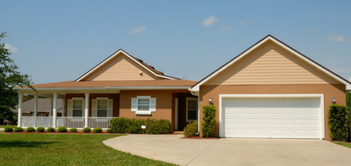Recent technology advances have made it easier for older adults to remain at home and independent, while assuring adult children their loved one is safe. Seniors don’t need every gizmo and gadget; however, the following devices can help them age in place:
- Medical alert systems: Every year, one out of four older adults (65+) Falls are also the leading cause of injuries (fatal and non-fatal) for older adults. In the event of a fall or other medical emergency, medical alert systems connect to a response center that calls a senior’s family or 911. With these systems, your loved one can receive assistance even if they can’t get to their home phone or cellphone.
Several companies offer medical alert systems, however, ComForCare and At Your Side Home Care partner with one of the pioneers in medical alert systems ― Philips Lifeline®. Philips Lifeline offers four systems including a smart phone app. Most systems include a wearable pendant or wristband and an in-home communicator, which directly connects to a response center representative. One of Philips Lifeline’s most popular features is Auto Alert, which can detect a fall automatically, without your loved one needing to press a button. Auto Alert can also distinguish between a fall and if the pendant was dropped. Contact your local ComForCare/At Your Side office to see if they participate in a Phillips Lifeline program.
- Carbon monoxide detectors: You cannot smell, see or taste carbon monoxide (CO), but the gas can be deadly. If you don’t have a CO detector, install one right away. CO detectors can plug into outlets, run off batteries or both. CO detectors last from five to seven years, so if you or your loved one can’t recall when the detector was purchased or haven’t heard it chirp lately, you should replace it. According to the U.S. Environmental Protection Agency (EPA), gas stoves, leaky chimneys and gasoline-powered generators are some primary sources of CO. So, be sure to monitor these items in addition to your detectors.
- Home security alarms: Many businesses on the market offer peel-and-stick security sensors that monitor the doors and windows of the home. If a window or door is opened, the system will beep or announce which window or door. Some systems offer automated on/off timers, so your older loved one doesn’t have to worry about remembering to set the alarm. Some “smart” home alarms even provide indoor and outdoor cameras with live feeds you can watch on a mobile device in case no one is home. Shop around online or in hardware stores to find the best prices or features for you and your loved one.
- Smoke detectors: Also called fire alarms, these gadgets have seen numerous updates in recent years. Some brands offer a “smart” model that announces where smoke is in the home and sends updates and alerts to your smartphone. However, you don’t necessarily need a “smart” detector. There are battery, hardwire and multifunctional versions as well as different sensor types. The International Association of Fire Fighters and the American Society of Home Inspectors recommend photoelectric smoke detectors. Regardless of which type you and your loved one decide to install, remember smoke alarms generally have a 10-year lifespan.
Home safety devices can help make aging in place attainable for seniors. However, replacing detectors and alarms aren’t the only factors to consider. To learn more about home safety, read our blog post “Keeping Safe at Home.”
If you believe your older loved one may need extra help with everyday activities, such as taking medications or bathing, you may want to consider home care. Download our Home Care Checklist to see if they would benefit from in-home care services.
![Duel-Logo-CFC-AYS[rgb]](https://blog.comforcare.com/hs-fs/hubfs/Duel-Logo-CFC-AYS%5Brgb%5D.jpg?width=525&name=Duel-Logo-CFC-AYS%5Brgb%5D.jpg)
